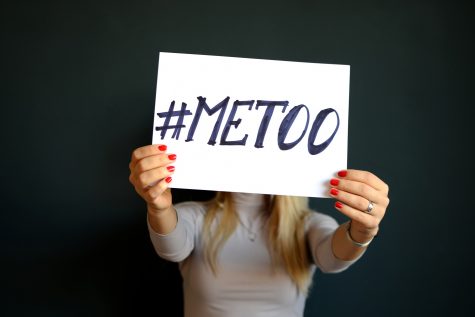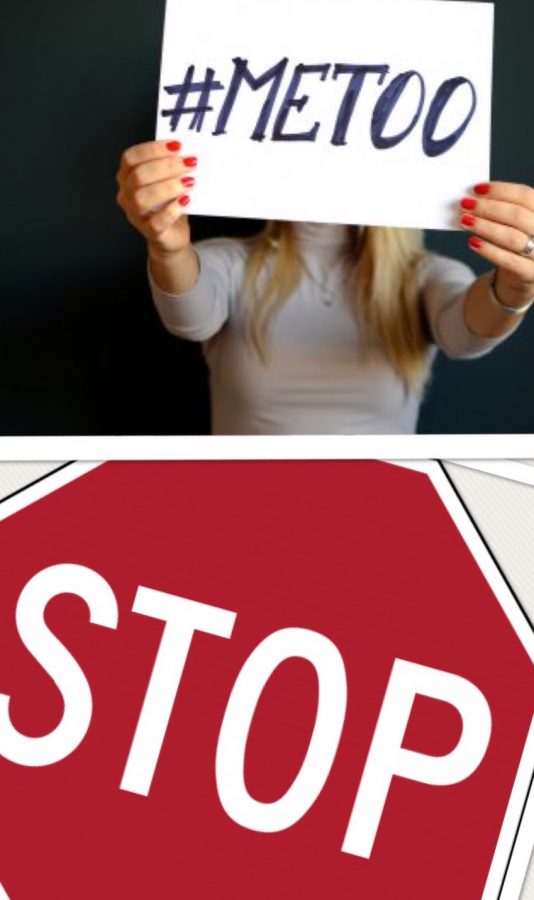
It’s time to get real about sexual harassment
By Pandora Domeyko
It happens in passing. On the street, at work, in class; a comment here, a touch there. It’s so common it almost seems casual, so common that it took me awhile to realize what it was—and how many times its happened to me.
When cases of sexual assault began to break in the media—from Bill Cosby to Harvey Weinstein to countless others, and even before, when hearing news of sexual assault on college campuses was a daily occurrence—I realized a few things. The first was that the stories spoken of by the victims of these men sounded a little too familiar. Stories of men getting a little too touchy in bars or hotel rooms, repeatedly pressuring their victims for sex, or even exposing themselves to someone who definitely did not ask for it. I could immediately identify with the sense of panic, disgust and discomfort they felt. It hits you like a punch in the gut. Then, it sticks in the back of your mind as a constant reminder of a moment when you felt powerless and afraid.
The feeling is familiar because, like most of the women I’ve spoken to (and probably most of the women I’ve ever met), I have directly experienced it. I’ve gotten comments while bartending from men who have daughters my age. Followed in broad daylight by jeering groups of guys much bigger and more threatening than I—one time, I was even followed into an ice cream shop. Fondled in crowds at concerts. Pressured for sex at parties. Even taunted with comments about oral sex while eating a slice of pizza on the street.
These are just my stories—and they’re not even the worst ones. If you ask any female, they’ll likely tell you variations. These experiences build up like a shameful collection, a flipbook in your mind of moments so uncomfortable that on a bad day they make you want to crawl under the covers and never come out.
The stories in the news have caused me to identify these uncomfortable moments for what they are: sexual harassment. They’ve also given a massive clue as to why sexual assault and harassment is so widespread: because of a culture in which we’ve allowed it to be.
It has nothing to do with age, race, or class. It’s not just men in positions of power (although that’s an issue in itself) and it’s not just one archetype of an evil, power-hungry man. It’s coworkers. Classmates. People passing by on the street. Friends you’ve known for years. I know that many of the men who have harassed me are likely good people. The problem is that they don’t know that what they’re doing is wrong. Nobody has told them—or if they have, they don’t believe their behavior causes serious harm.
Harassment is often dismissed as “locker room talk” or “boys being boys”. Critics of women and men who come forward with their stories become defensive, claiming that they seek out attention and are “asking for it” based on what they wear, how they dance, or how much they drink. Others use “freedom of speech” as a free pass to say whatever they want to whoever they want, labelling victims as ‘too sensitive’ or ‘no fun.’ “Oh, what, we can’t say anything now?” Well, if it makes someone uncomfortable and perpetuates a culture in which women live in constant fear of being sexually harassed or assaulted, is it worth it?
All of these defenses are dangerous. To use them is to harm everyone who has been on the receiving end of harassment and everyone who has been a victim of sexual assault. The constant harassment thrown around without a second thought creates an environment in which it’s okay to treat others with disregard to their feelings, comfort, and safety. It pushes the idea that if you want sexual pleasure from somebody, you have a right to it, whether they reciprocate your desires or not. Most importantly, it encourages those with a hunger for power over others to act on that hunger—through rape and assault.
Defending sexual harassment shouldn’t happen. Defending women against sexual harassment should. Those who don’t take cases of sexual harassment seriously likely haven’t been affected by it. I urge those people to do some thinking—and some listening. A good place to start would be speaking to the women around them about their experiences with harassment—perhaps a sister, a mother or a daughter.
I know the discomfort and fear I’m made to feel on a near daily basis is nothing compared to the way a victim of sexual assault must feel. And while we can all agree sexual assault is an issue, it’s time we all realize that the environment created by constant, casual sexual harassment is to blame.
Pandora Domekyo is a reporter and managing editor with The Picket she can be contacted at paffem01@rams.shepherd.edu .
Sexual harassment from a man’s perspective
By Ryan Sturdivant
Sexual harassment is one of the most common acts of violence that happens every day, and has become a leading story in today’s news because women are increasingly speaking out against offenders in every segment of American society – from movie producers, to U.S. Senate candidates, to comedians.
If a person is forced into any form of sexual act against their will it is considered sexual harassment. Touching someone without their consent, saying anything inappropriate, or even looking at a person with sexual intentions are all considered sexual harassment and assault.
Research shows that one out of six women has been a victim of an attempt or completed rape in their lifetime, which means they have also been sexually harassed. My perspective is that if a woman or a child is sexually harassed and or assaulted it should be taken seriously and the person who is responsible for initiating the assault should be punished. No matter how big or small the situation may be to some, women and children shouldn’t have to deal with it.
As a man, I tend to look at sexual harassment toward myself as something small that could be easily forgotten. If a woman were to sexually harass me I honestly wouldn’t consider taking the situation to court because of the simple fact that I don’t feel as if a woman can make me feel uncomfortable sexually.
My opinion is frowned upon by many because of my belief that as a man you should have enough confidence to not let something like sexual harassment effect you like it may effect a woman or a defenseless child.
Because of my upbringing I believe that men are supposed to protect women and children from any harm or danger. I take sexual harassment towards the two seriously because if they end up being a victim that means a man didn’t take responsibility in putting a woman or a child’s safety and well-being first.
Ryan Sturdivant is a Sports Writer for The Picket. He can be reached at rsturdivant19@gmail.com

